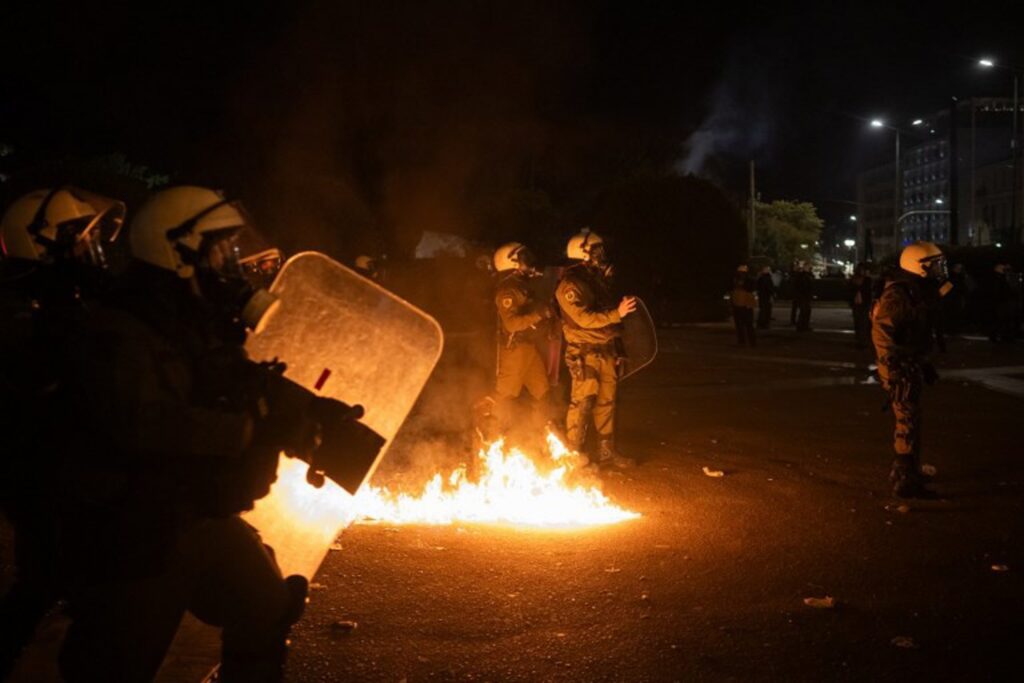Riots broke out in Athens and other Greek cities on Friday in response to the handling of a major train accident from two years ago, while a no-confidence motion against Prime Minister Kyriakos Mitsotakis’ government was rejected by parliament.
Tens of thousands of people took to the streets of Athens during the debates on the no-confidence motion. Masked protesters clashed with police in front of parliament and there were also disturbances in other Greek cities such as Thessaloniki.
The failure of the no-confidence motion was not surprising. Prime Minister Mitsotakis’ conservative Nea Dimokratia party holds an absolute majority in parliament with 156 of the 300 seats. After two days of intense and tense debates, 157 members voted against the motion, while 136 supported it.
Friday’s parliamentary debate was heated. Opposition leader Nikos Androulakis accused Prime Minister Mitsotakis of “criminal” responsibility for the accident. Mitsotakis countered by accusing the opposition of ignoring global geopolitical challenges and attempting to destabilise the country for political gain. He promised to modernise the Greek railways by 2027.
On 28 February 2023, just before midnight, a passenger train travelling from Athens to Thessaloniki collided head-on with a freight train near Larissa. The collision resulted in the deaths of 57 people, mostly young adults. The two trains, one of which was carrying over 350 passengers, had been on the same track for 19 minutes without any warning signal going off.

